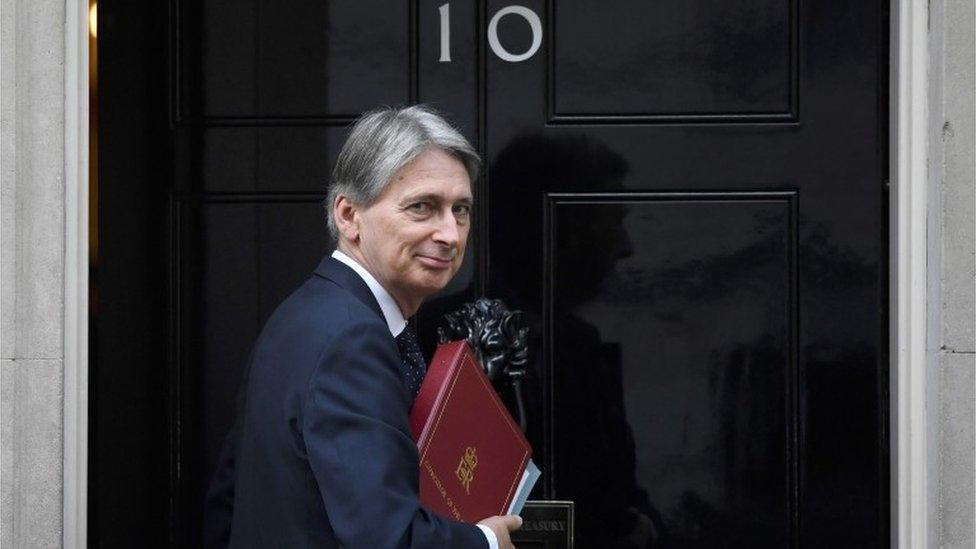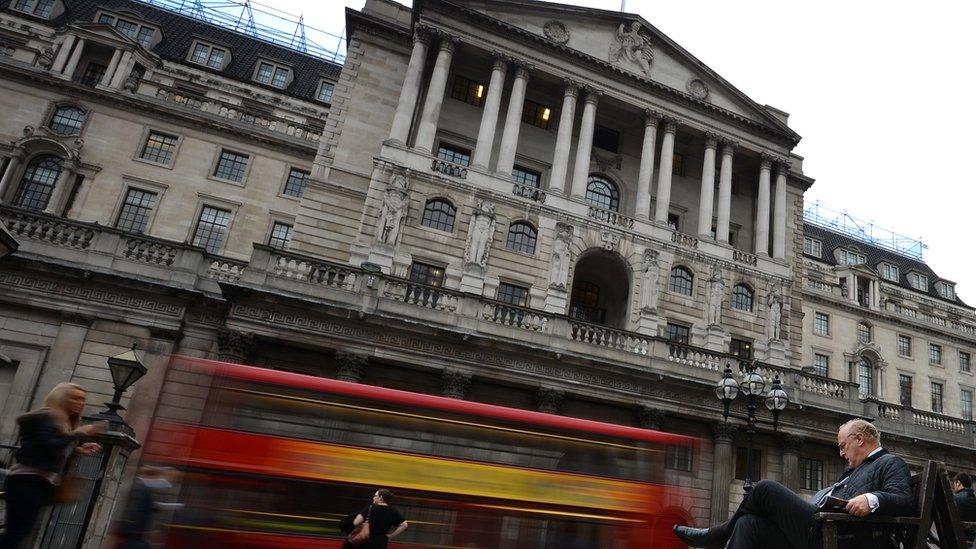Hammond faces £25bn Brexit fallout
- Published
- comments

In a football match, it is not usual to start 3-0 down.
But, in economic terms, that is effectively where the government is as it approaches the Autumn Statement at the end of the month.
The previous Chancellor, George Osborne, set the government three rules it would adhere to, an attempt to show a sceptical public that it was bearing down on the country's deficit (the amount a country spends on public services versus the amount a country earns via tax receipts) and being tough on the accumulation of debt (the overall amount a government owes).
All three have been broken or abandoned - the cap on welfare spending, the pledge to reduce debt as a proportion of national income and the promise to balance the books (so ending the deficit) by 2020.
Difficulties ahead
The last target was dumped after the result of the referendum brought forward a raft of economic downgrades for the UK economy which - if they come to pass - will lead to a reduction in government income and make eliminating the deficit even more problematic without further tax rises and public sector cuts.
That is the unhelpfully cut-up pitch on which the present Chancellor, Philip Hammond, is playing ahead of his first major economic outing, the Autumn Statement in two weeks' time.
Today's report by the Institute for Fiscal Studies reveals the difficulties ahead.
It suggests that given the slowdown predicted in the economy the chancellor will be dealing with a public finances outlook £25bn worse than predicted in the Budget last March.
With no changes in policy - and that's a major assumption given that Mr Hammond is (a) a new chancellor and (b) has already spoken of a "fiscal reset" - the IFS says tax revenues will be £31bn lower.
That will be partially offset, the IFS says, by the £6bn the government may regain by ending its contributions to the EU budget.

But, again, that is a pretty major assumption.
Many government sources I have spoken to believe that in order to smooth the transition to a free trade deal with the EU (particularly if there is no agreement on freedom of movement) the government may need to maintain some budget payments.
Of course, in public finance terms, it is not all one-way traffic on Brexit.
The Bank of England's decision to cut interest rates to 0.25% reduces the cost of servicing the government's debt.
Too pessimistic?
The fall in the value of the pound (which pushes up import prices) also makes Britain's trade deficit smaller as it improves export performance.
And the increase in dollar earnings and profits for global companies based in the UK will also be beneficial for the government's tax receipts.
These are all rather more marginal than the overall negative effect of the predicted slowdown in the economy.
Some believe those gloomy predictions will prove too pessimistic - just as the predictions of a possible recession this year proved to be.
And, if they are, all the estimates on the public finances will have to be redone, again.
Such is the pain and unpredictability of economic forecasting.
Room for manoeuvre?
This close to the Autumn Statement, the Office for Budget Responsibility - the official economic watchdog - will be giving the Treasury weekly updates on its predictions for the future of the public finances.
The OBR is likely to downgrade its growth predictions for the UK economy - following in the footsteps of the Bank of England.
That means that government receipts will be forecast to be lower.
The government could respond by cutting spending further (unpalatable), raising taxes (unpalatable) or loosening the deficit reduction target (likely).
If economic growth does slow, Mr Hammond's room for manoeuvre to gain back some of those lost goals will be limited.